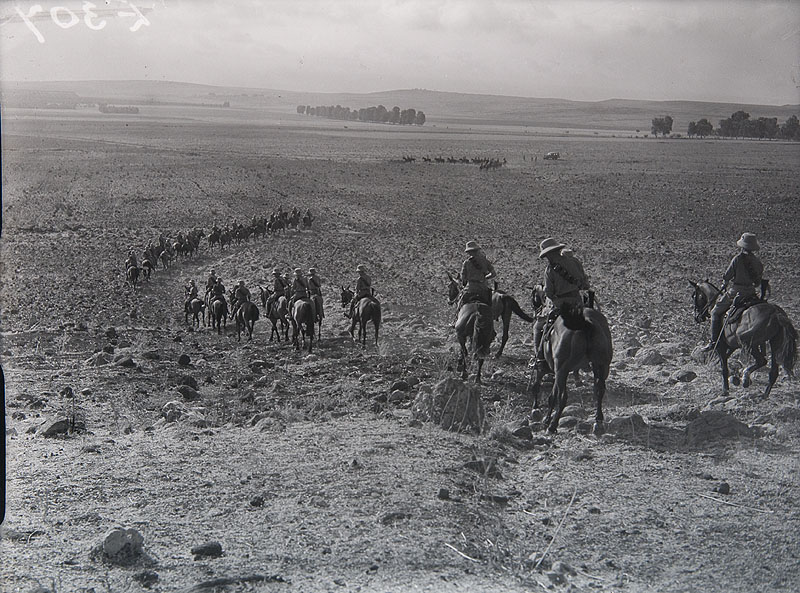Written by Philip Boobbyer.
The collapse of the Italian empire in North and East Africa in 1940-41 created a major headache for British administrators, even while it was a great success for the military. Policymakers had to come up with a way of controlling vast, far-flung territories in a rapidly changing situation. There were only a tiny number of competent people available to manage negotiations, run the finances and police the rule of law. This kind of problem was nothing new for an advancing army. It is one thing to win battles, another to govern defeated territories efficiently in a time of transition.
The Occupied Enemy Territory Administration, set up in early 1941 under General Archibald Wavell, wrestled with this challenge. Its first Chief Political Officer was Philip Mitchell, the pragmatic former Governor of Uganda, while explorer and banker Lord Rennell (Francis Rodd) was Chief of Finance and Accounts. From the outset, Rennell pushed for ‘indirect rule’: he argued that in the Somali territories and Eritrea, it was more practical to make use of existing Italian structures than to install a completely new British administration. In July 1942, Rennell took over Mitchell’s responsibilities in East Africa Command, and was made an Acting Major General. Under Rennell’s watch, a form of ‘indirect rule’ was then applied in Madagascar following the success of Operation Ironclad; the British kept Vichy structures in place on the island before passing the country to Free French control in January 1943.
The doctrine of ‘indirect rule’ was popular amongst British colonial officials in the inter-war period. It gave a veneer of legitimacy to the British Empire because it meant governing through local elites rather than replacing them. It also appealed to traditionalists who wanted to protect aspects of African culture from Western modernity. But it was also the product of the simple fact that the British were vastly over-stretched in running their empire. In many ways, British military rule in Africa was an adaptation of this, even if it was built on European structures rather than African ones.
The question of how to run conquered territories came into renewed focus in summer 1943 with the Allied invasion of Sicily (Operation Husky). Here Rennell, highly regarded in the War Office for his work in Africa, was given the role of Chief Civil Affairs Officer in AMGOT (Allied Military Government of Occupied Territories). It was a big responsibility: he was running the first Allied military government in Europe. In the chain of command, he was answerable first to General Alexander, in charge of 15th Army Group, and ultimately to American Supreme Commander, Dwight Eisenhower.
The challenge facing AMGOT was made more complex by the fact that Operation Husky was a joint British-American operation. Creating a sense of cultural unity in the two armies was not easy. There were ideological differences too. As in Africa, Rennell pressed for indirect rule in Italy on pragmatic grounds, countering an initial American instinct for a direct form of administration. His arguments were successful. Controversially, this meant leaving some junior fascist personnel in place in Italy, while removing those at the top. Some on the Left charged AMGOT and Rennell himself with being insufficiently anti-fascist. Part of the problem was that some of the most eloquent anti-fascists were mafiosi. The Allies were caught in a difficult position; if leaving fascist administrators in place was undesirable, the alternative was at times unpalatable. This has been a subject of debate ever since: AMGOT has sometimes been accused of turning a blind eye to the return of the mafia to Italy, in particular through the American army.
As Allied forces advanced onto the mainland, a new challenge emerged. Managing ‘civil affairs’ in the immediate wake of an advancing army was a different problem from overseeing the administration of an increasingly large territory. In order to do the latter, the Allied Control Commission (ACC) was set up in November 1943. This resulted in tensions between already existing AMGOT operations and the ACC. Rennell – who was a combative, outspoken figure – was furious at what he saw as incompetence by the ACC. He thought that the size of the ACC pointed in practice in the direction of a direct form of rule: he was wary of Allied reformism if it meant ignoring the wishes of the local population. He complained that he and Alexander had been sidelined from major decisions, in part by the Military Government Section in Eisenhower’s headquarters. Exhausted with the relentless nature of war work, he returned to Britain. When a job with the forthcoming Normandy campaign failed to materialise, he resumed his banking activities. He was president of the Royal Geographical Society between 1945 and 1948.
Rennell’s wartime career brings into focus some of the challenges facing armies as they seek to govern effectively in a changing battlefield situation. The nature of military administration depends on the resources available, as well as the outlook of local populations. Rennell was a pragmatist who out of expediency sought to make use of already existing structures. But he was also idealistic about what could be achieved through Anglo-American cooperation, even while he was also wary of the West imposing its ideals on others. He was at his best working in a fluid, informal structure alongside like-minded people, but less comfortable in a more rigid bureaucratic framework. The story of British wartime administration in Africa and Europe, in which he played a significant part, remains little-known.
Philip Boobbyer is Reader in History at the University of Kent. His book The Life and World of Francis Rodd (Lord Rennell), 1895-1978: Geography, Money and War will be published by Anthem Press in 2021.
Image Credit: Unknown World War 2 cavalry by Photos of the Past/Flickr, License: Public Domain Mark 1.0.

